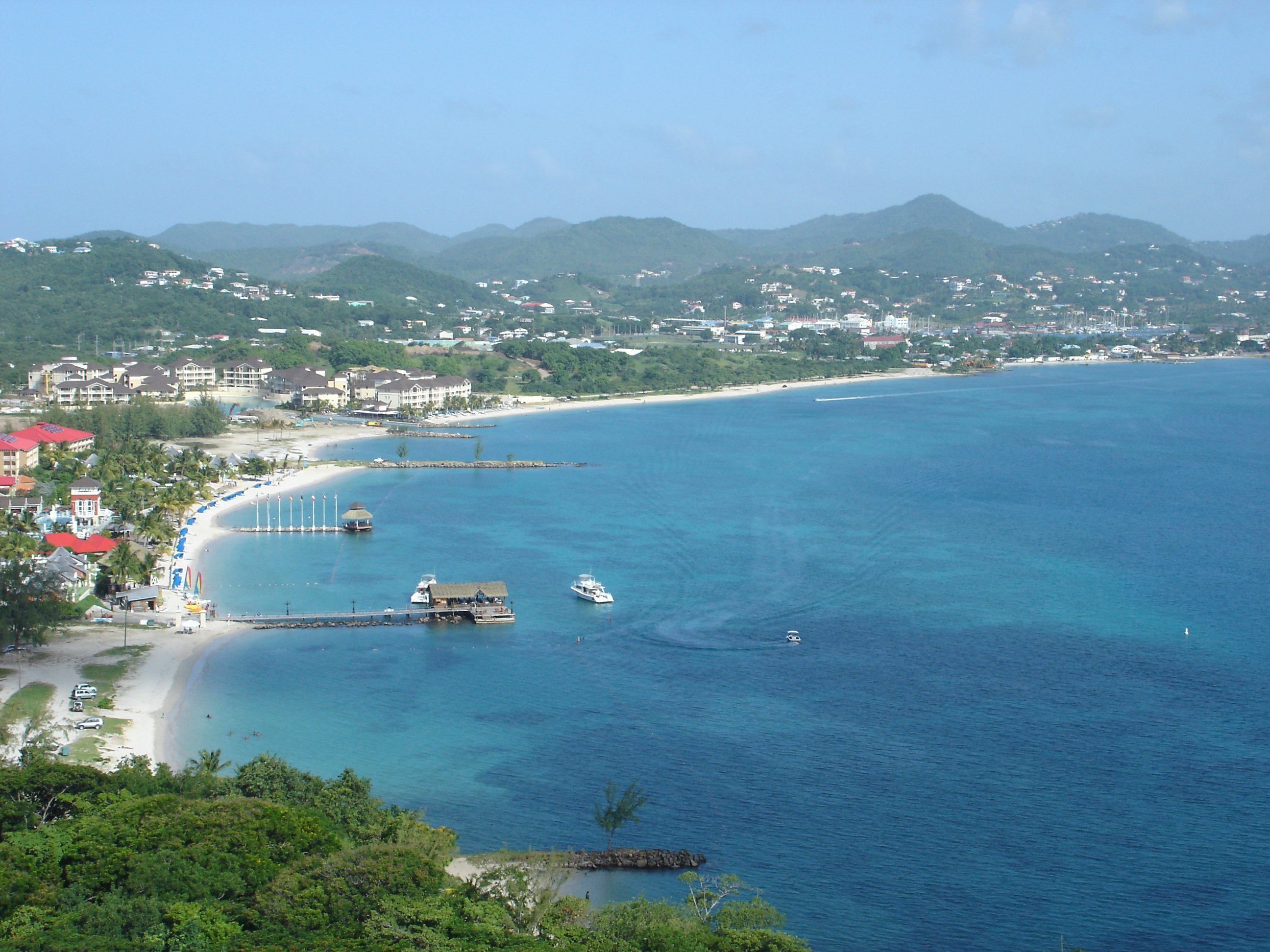🇱🇨map Saint Lucia [Overview]

Saint Lucia is the official English name, and in the island’s everyday Creole it’s known as Sent Lisi. Set in the eastern Caribbean between Martinique and Saint Vincent, it’s a lush, mountainous island about the size of a midsize city, famed for the twin Pitons rising dramatically from the sea. The population hovers around 180,000, with most people living along the coast and in and around the capital, Castries. It’s one of the few places in the region where you can soak in a drive-in volcanic caldera, then be at a white-sand beach 20 minutes later. Another detail that always delights newcomers: Saint Lucia is the only sovereign nation in the world named for a woman—Saint Lucy of Syracuse.
Life on the island runs at an easy tempo, but it’s wired enough for work and well connected for travel. You’ll find two airports—Hewanorra International in the south for long-haul flights and George F. L. Charles near Castries for regional hops—plus reliable ferry routes to neighboring islands. Neighborhoods range from historic Castries and artsy, beachy Rodney Bay to more tranquil southern communities near Soufrière, home to the Pitons and hot springs. As a base for remote work or a longer stay, it strikes a pleasant balance: Caribbean charm with just enough infrastructure to keep you productive.
Economy
Tourism is the island’s main economic engine, and many residents work in hospitality, food and beverage, marine services, and tour operations. Agriculture still matters—bananas, cocoa, and tropical fruits are the staples—while small-scale manufacturing, creative industries, and business support services add to the mix. Natural assets are front and center: fertile volcanic soils, dramatic coastlines, rainforests, and geothermal features feed both the visitor economy and local livelihoods. Digital nomads will find growing pockets of coworking and business services in the north, especially around Rodney Bay and Gros Islet.
Saint Lucia is well connected within the Caribbean and beyond. It uses the Eastern Caribbean dollar, a stable regional currency managed by the Eastern Caribbean Central Bank, which helps with predictable day-to-day costs. The country is an active member of CARICOM and the Organization of Eastern Caribbean States, participates in the Commonwealth and the United Nations, and maintains close ties with North American and European markets. Flights link the island to hubs like Miami, New York, Toronto, and London, with additional seasonal routes, while inter-island flights and ferries make regional travel straightforward.
Culture
English is the official language and the language of government and schooling, while Saint Lucian Creole French—Kwéyòl—is widely spoken in homes, markets, and music. Most people are of African descent, with communities of mixed heritage, Indo-Caribbean, and European ancestry adding to the blend. The island’s history reflects centuries of French and British influence—control switched hands multiple times—before independence in 1979, which explains the bilingual place names, Creole traditions, and British-style institutions you’ll notice today. Music, Carnival, and community festivals carry the social calendar, and food leans into fresh fish, spices, green figs (bananas), and Creole flavors.
Saint Lucia is predominantly Christian, historically Roman Catholic with vibrant Protestant and evangelical communities, and an easygoing spirit of religious coexistence. The cultural year is lively: Independence Day on February 22 features parades and national pride; the Saint Lucia Jazz and Arts Festival draws international acts each spring; and Carnival in early summer fills the streets with music and masquerade. In October, Jounen Kwéyòl celebrates Creole language and heritage with food, dance, and traditional dress, while National Day on December 13 honors Saint Lucy with island-wide events. Whether you’re staying for a month or putting down roots, you’ll find communities that welcome newcomers to join in, learn a few phrases of Kwéyòl, and feel at home on island time.
Sophia
Sophia is a relocation specialist and cross-border business consultant originally from Toronto, Canada,
with over 13 years of experience in North American and Caribbean markets. Having worked for major
international relocation firms and managed corporate assignments across the United States, Canada,
Mexico, and popular expatriate destinations in Central America and the Caribbean, Sophia has extensive
experience facilitating international moves for professionals and retirees. Her expertise spans both
the practical aspects of visa navigation and the cultural nuances of adapting to life in North American
and Central American communities.
Published: 2025-06-25